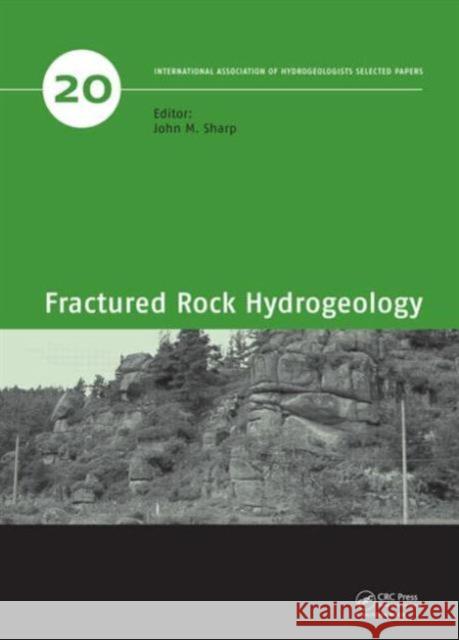Fractured Rock Hydrogeology » książka
Fractured Rock Hydrogeology
ISBN-13: 9781138001596 / Angielski / Twarda / 2014 / 408 str.
Fractured Rock Hydrogeology
ISBN-13: 9781138001596 / Angielski / Twarda / 2014 / 408 str.
(netto: 744,80 VAT: 5%)
Najniższa cena z 30 dni: 755,61
ok. 22 dni roboczych.
Darmowa dostawa!
Fractured rocks extend over much of the world, cropping out in shields, massifs, and the cores of major mountain ranges. They also form the basement below younger sedimentary rocks; at depth; they represent a continuous environment of extended and deep regional groundwater flow. Understanding of groundwater flow and solute transport in fractured rocks is vital for analysis of water resources, water quality and environmental protection, geotechnical and engineering projects, and geothermal energy production. Book chapters include theoretical and practical analyses using numerical modelling, geochemistry, isotopes, aquifer tests, laboratory tests, field mapping, geophysics, geological analyses, and some unique combinations of these types of investigation. Current water resource and geotechnical problems in many countries--and the techniques now used to address them--are also discussed. The importance of geological interpretation is re-emphasised in analysing the hydrogeology of fractured, mostly crystalline rocks and in how critical this is for understanding their hydrology and the wise utilisation of resources. This is indeed hydrogeology in its broadest sense. The importance of, but great difficulty in, extending or upscaling fractured rock hydraulic properties is also made clear. This book is aimed at practicing hydrogeologists, engineers, ecologists, resource managers, and perhaps most importantly, students and earth scientists not yet familiar with the ubiquity and importance of fractured rock systems.











